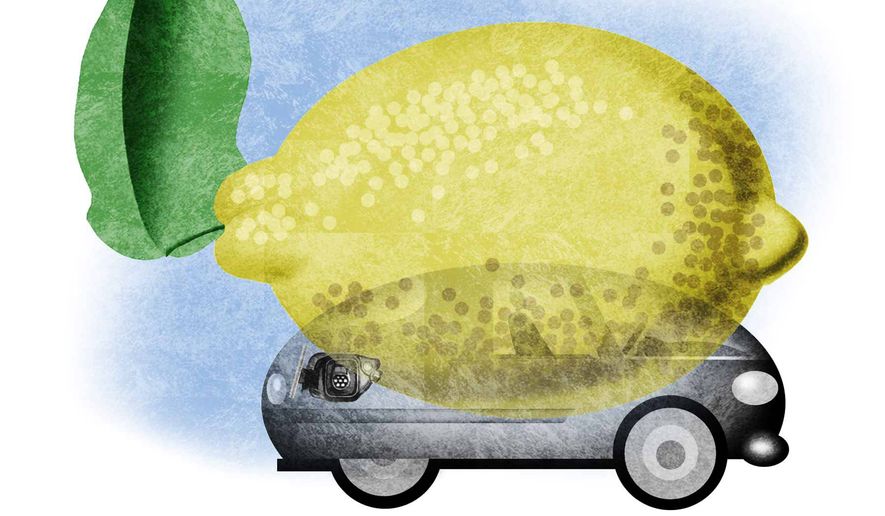OPINION:
Last week, the Biden administration announced sweeping emission standards. The White House stated that the new rules would “accelerate the clean vehicle transition” and reduce pollution by nearly 10 billion tons by 2055.
The new tailpipe emissions rules unveiled by the Environmental Protection Agency under the Clean Air Act will require automakers to ensure a mammoth 56% reduction in gas emissions in 2032 vehicles compared with 2026 models, essentially forcing the auto industry to switch from the production of gasoline-powered cars to electric vehicles (EVs). President Biden’s goal is for EVs to represent 67% of auto sales by 2032.
Yet the American people don’t want EVs.
Last year, EVs represented only 6% of new auto sales, as they’re more costly and don’t drive as far as internal combustion vehicles. The best-selling EV in the U.S., the Tesla Model Y, costs $65,000 (more than the household income of 46% of American families) and has a driving range of only 330 miles. Gas-powered alternatives sell for roughly $20,000 cheaper and have a 30% greater range.
Those who buy EVs are upper-income households who live in urban neighborhoods that would rather charge their car than drive it. For many, it’s their second or third vehicle — behind the gas-powered ones they already own. It’s a novelty, not a necessity, unlike the cars purchased by most Americans, who view their vehicle as a major investment and depend on them to commute to work and use them for road trips.
A poll conducted last week by the Energy Policy Institute at the University of Chicago and The Associated Press-NORC Center for Public Affairs Research found nearly half of Americans said it’s unlikely they would purchase an EV as their next car, citing the lack of charging options and high costs. Only 19% of respondents said it was “very” or “extremely” likely they would purchase an EV.
Still, the Biden administration doesn’t care — and doesn’t want the market to decide which cars to manufacture based on good old-fashioned supply and demand. Biden’s new tailpipe regulation is akin to Chinese Central Planning, designed to ban gas-powered cars and control the way the majority of Americans live, work and play. All in the name of climate change.
The result will be fewer cars on the road — and that’s exactly what the Biden administration wants. As automakers shift their production to EVs, they will produce fewer gas-powered cars. Thus, the price of gas-powered vehicles will increase. Soon, all cars may become unaffordable to the American public. The rich will not have to worry. The average American family will go from a two-car household to a one-car household, forced to use public transportation, bicycles, scooters or Uber for their transportation needs.
Again, another “win” for the climate-warrior elites but a massive loss in the quality of life most Americans have become accustomed to.
Jobs will also be lost in the transition.
Last year, Ford laid off 3,000 American workers in an effort to cut costs to produce more EVs, which are more expensive than their gas-powered alternatives to manufacture. In February, the multinational automaker Stellantis closed its assembly plant in Illinois for the same reason.
The Economic Policy Institute, a liberal think tank, said the U.S. could lose as many as 75,000 automotive jobs by 2030 if EVs rise to half of domestic sales.
The Biden administration argues that government subsidies will both lower the cost of EVs and help automakers increase their production. Any jobs lost will eventually be recovered in the new green economy.
Government subsidies, however, are taxpayer money. Not only will you be happy you’re no longer driving, but you’ll be paying for it, at the cost of $523 billion over 10 years, according to a recent Goldman Sachs report.
Meanwhile, the entire U.S. transition is a boon for China.
China controls the EV supply chain, holding 78% of the world’s cell manufacturing capacity for EV batteries, according to a Brookings Institution analysis last year. It also controls the majority of global mining and refining of the critical minerals needed for EV battery production.
China wins. America loses. All to reduce carbon emissions that not even the experts can agree will happen.




Please read our comment policy before commenting.